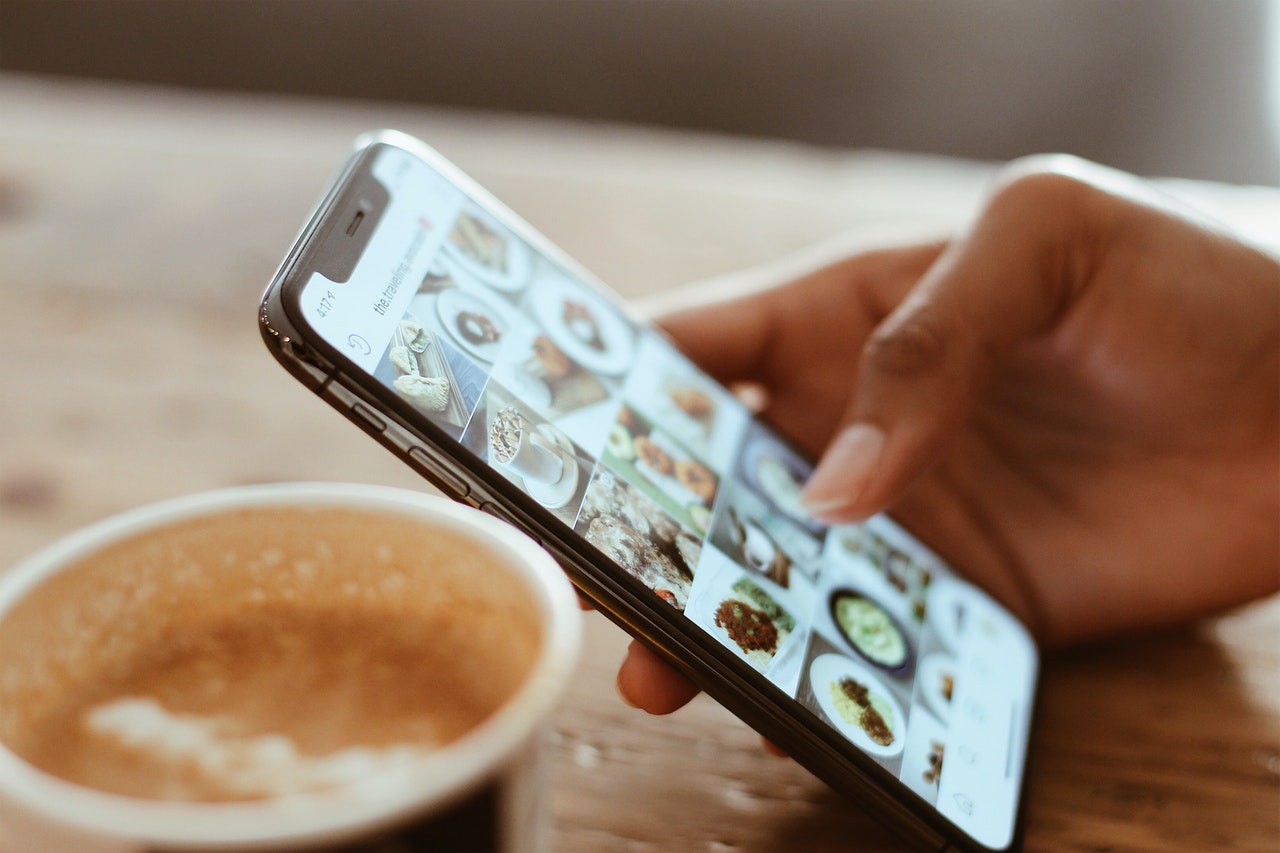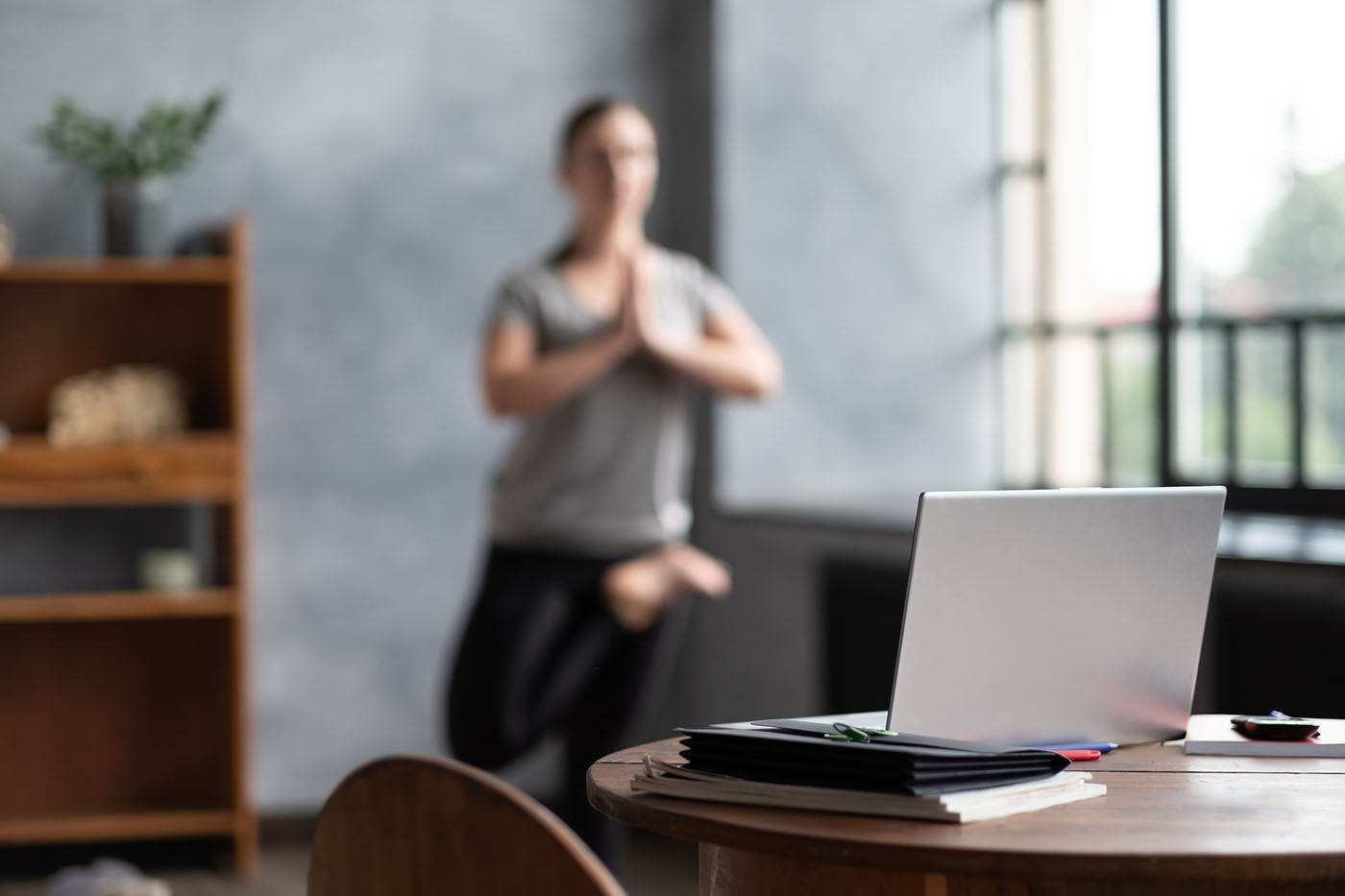We’re all familiar with the term “work-life balance.” But it wasn’t always as popular a…

Social Media and Mental Health: Why (and How!) To Avoid Comparison
Fifteen – even ten – years ago, if you’d told most of us we’d be living in a world where everyone from adolescents to octogenarians would be living at least a portion of their lives on the internet, you would’ve been met with a significant amount of disbelief.
But that world has come to fruition. And sites like Facebook, Instagram, Twitter and Pinterest are now daily haunts for many of us. Worldwide, in fact, there are just about 3.81 billion people using social media, and they spend an average of 2 hours and 24 minutes on these sites per day.1
Studies have shown that social media use has already profoundly changed the way we communicate with each other,2 and it stands to reason that these changes are having a deeper impact on us, too – but what is it?
And when it comes to social media and mental health, is it helping or hurting?
Social comparison theory
In 1954, American social psychologist Leon Festinger shared his theory of what he called “social comparison.” Essentially, Festinger posited, humans are naturally drawn to making comparisons between ourselves and others.
We have some ability to differentiate, of course. We can recognize when we’re a beginner in our field, for example, and we won’t compare our own skills to the experts’. Similarly, we understand that we should not compare our athletic ability to that of a child or an elder.
Innately, we tend to choose others who we perceive as being generally like us – people with whom we feel some kind of similarity.
Social comparison theory tells us that these comparisons are not only how we assess and evaluate others but ourselves, as well.
Social media and mental health
Social comparison isn’t all bad. It can even be motivating! Maybe you recognize that your skills, abilities or talents are a step above someone else at your general level, and this inspires you to continue putting your best foot forward. This is called downward comparison.
Or perhaps you see a peer working a little harder than you have been, and then realize that they’re getting to work on the projects you’re interested in or making better plays on the field. So in a show of upward comparison, you decide you need to work a little harder, too.
For those who struggle with contingent self-esteem – who look to others for a measure of their own self-worth – this is obviously a more dangerous proposition. But in our down time or more vulnerable moments, we’re all prone to letting social comparison make us feel not inspired but simply bad about ourselves.
A feature, not a bug
Worldwide, the average number of social media accounts per person is more than eight.3 So it’s safe to say we spend a lot of time connecting with each other online.
Where the typical person used to have between ten and twenty close social connections to choose from, the rise of social media sites has rocketed that number into the hundreds, on average. So online, where we’re inundated with our peers’ virtual highlight reels at the tap of an icon, we have ample opportunity to compare ourselves with others – and to feel bad about it, too.
A 2017 study found that rates of depression and anxiety were higher among social media users between the ages of 19 and 32.4 There’s even some evidence to show that as many as 10 percent of Americans have an actual addiction to social media.5
And the truth is – addiction to these platforms is a feature, not a bug.
In 2017, former Facebook bigwig Sean Parker outed the company as being fully aware of the effect it had on its users – and, in fact, purposely exploiting their knowledge of brain chemistry to hook users on the site.6
Since then, numerous developers have come forward to say basically the same thing:
Facebook, Instagram and the like are designed to make you feel just bad enough to keep on scrolling.7
Is a social media detox the only way?
The dopamine hits that come from getting “likes” and engagement on social media8 keep you coming back for more – especially during those moments when you’re already feeling blue and looking for a pick-me-up.
But over the years, more and more evidence has shown us that it doesn’t really work; the pleasure scrolling social media brings us is temporary, and more often than not, we’ll end up feeling worse than we did before.
Social networking is here to stay, though, and for a lot of us, it’s nearly impossible to step away from using it entirely.
So how can we protect ourselves from the social comparison trap if a full social media detox isn’t in the cards?
Start with a small social media detox.
It might be tough, but a short break from social media sites can be good for anyone. Take a few days or a few weeks and step away! Reset yourself to operate socially away from the screen.
Alternatively, try deleting the apps from your mobile device and only allow yourself to visit social networking sites while you’re at your computer. You’ll gain a lot of time back if you can’t just reach for your phone and start scrolling.
Use apps and device settings to limit the time you spend browsing.
iPhone’s iOS comes with a built-in Screen Time setting, where you can choose how much time you want to spend browsing things like Facebook, Instagram and Twitter before your phone starts blocking those apps. (And yes, it will catch you if you try to sidestep by opening your browser and navigating to the website, instead!)
If you’re finding it difficult to resist the siren call of social media while in front of your computer during the day, browser extensions like BlockSite can automatically redirect you to the website of your choosing when you type in the URL of a social platform.
Stop following everyone. (Yes, everyone.)
Bring your “following” count down to zero on sites like Instagram or Twitter. Take your time and slowly re-add only those accounts that bring you affirmation and joy. You’d be surprised at how many influencers and companies we can end up following when we aren’t intentional about it – and most of them are trying to sell us something, either product or image.
Remember that it was engineered this way.
If you’re getting sucked in, it’s because you’re meant to be sucked in. It’s not your fault! Keep that in the back of your mind when you start feeling guilty about how you think you’re stacking up against your peers.
Consider – do you really care about someone else’s vacation, their morning workout or how they’ve packed their kid’s lunch?
As humans, we love to share and connect, and there’s nothing wrong with wanting to do so! But our social media feeds have let us into the traditionally-private routines of the people we follow. Things we wouldn’t have blinked an eye over years ago have become false barometers for our self-worth.
Compare yourself strategically or not at all.
If you do tend to feel motivated by comparing yourself to others in your sphere, then choose wisely: it’s better to look at someone who might be only a few rungs above you on the ladder, whose success is attainable and inspiring, rather than demotivating.
But the best method of all is to compare ourselves only to ourselves. How are you feeling about your personal development? Your growth? Are you “better” than you used to be? Wiser, happier, making healthier choices for yourself?
At the end of the day, it’s important to identify what matters to you and what makes you happy – and avoid letting social media get in the way!
Endnotes
- https://backlinko.com/social-media-users
- https://www.forbes.com/sites/quora/2017/11/07/how-media-changes-the-way-we-communicate
- https://backlinko.com/social-media-users
- https://www.ncbi.nlm.nih.gov/pmc/articles/PMC4853817/
- https://www.addictioncenter.com/drugs/social-media-addiction/
- https://www.theguardian.com/technology/2017/nov/09/facebook-sean-parker-vulnerability-brain-psychology
- https://www.businessinsider.com/facebook-has-been-deliberately-designed-to-mimic-addictive-painkillers-2018-12
- https://www.theguardian.com/technology/2018/mar/04/has-dopamine-got-us-hooked-on-tech-facebook-apps-addiction


